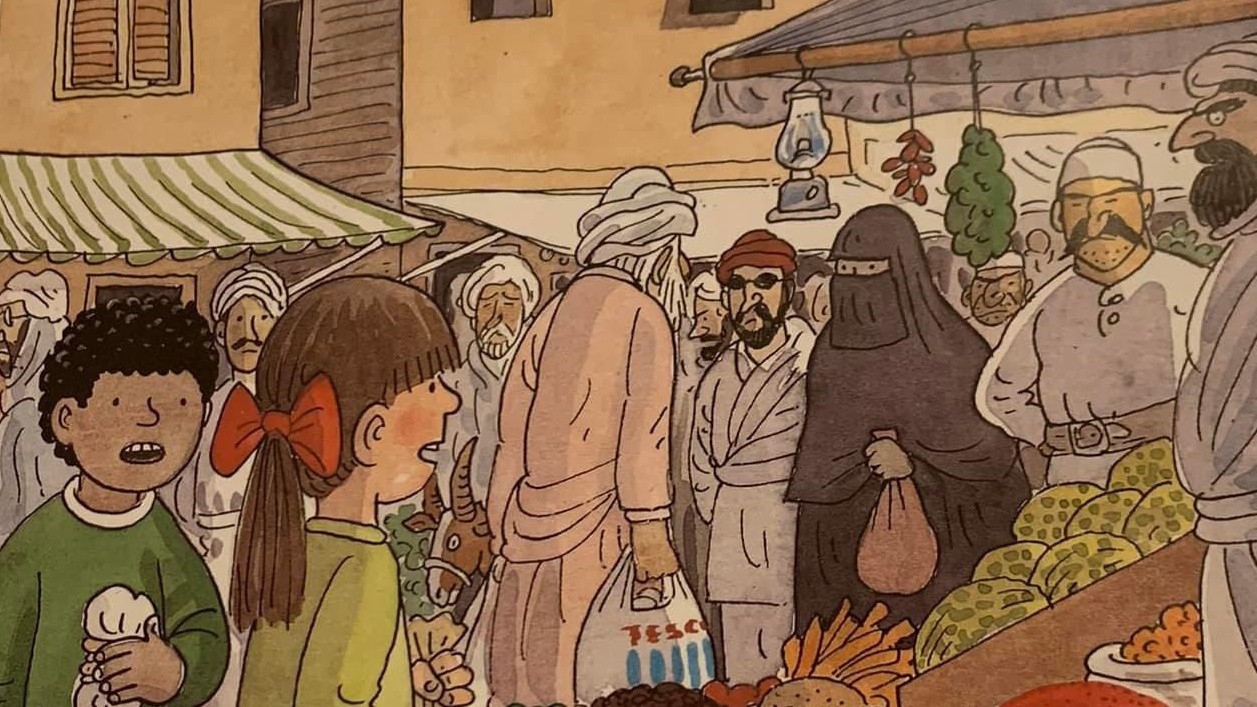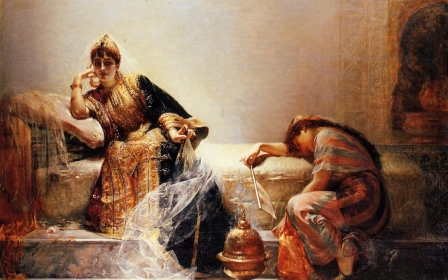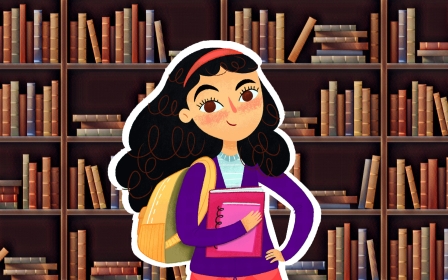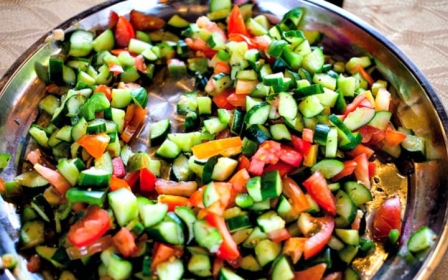Biff, Chip and Kipper book accused online of ‘racist’ depiction of the Middle East

An instalment of the widely read Biff, Chip and Kipper collection of children’s stories has drawn criticism online for its depiction of the Middle East as a frightening place.
The short story, titled The Blue Eye, portrays two characters, Wilf and Biff, acquiring a collection of old marbles that leads the pair on an adventure.
The marbles magically transport Wilf and Biff to a foreign land that, according to the illustration, appears to be somewhere in the Middle East.
In the story, the characters are depicted in a marketplace as one of the characters points out that “the people don’t seem very friendly”. The page was shared online and sparked criticism for being “inappropriate".
Stay informed with MEE's newsletters
Sign up to get the latest alerts, insights and analysis, starting with Turkey Unpacked
While some have urged people not to take the page out of context, many were quick to point out that the remark was not an isolated one. Further along in the story, another character says, “I don't like this place. It's scary.”
The publisher, Oxford University Press, apologied after the backlash and said the book has been taken out of print.
“We sincerely apologise for the offence this book has caused. We constantly review all our books to ensure everyone is fairly represented and we take our responsibility to learn and improve very seriously," the publisher said in a statement sent to Middle East Eye.
"Please be reassured this book has already been taken out of print and is no longer available to purchase,” it added.
Many Twitter users were outraged by language used in the story, saying that it appeared racist and Islamophobic.
The Biff, Chip and Kipper collection of stories is used widely in UK primary schools to help teach children how to read. In light of this, many were disturbed that children would be exposed to such language.
“What makes this so bad is that this book is used in school to teach kids to read. So they also get to learn how to be islamophobic,” one Twitter user wrote.
For others, such an interpretation was far-fetched, suggesting that Biff and Wilf’s reaction is expected from a child who is experiencing a new place.
“No your interpretation of it is making it seem worse. They are kids in an unfamiliar place. Markets are loud to kids and potentially frightening,” one reply to the original tweet read.
Another user wrote: “You're 'reading' into something which isn't appropriate to you. These are little kids making an observation about their strange surroundings and just being careful.”
There are more than 800 titles in the Biff, Chip and Kipper series, which has become a mainstay of the UK's National Curriculum.
This is not the first time that a children’s book has caused controversy for its use of problematic language.
Last year, the Dr Seuss Enterprises announced it would cease the publication of six books by the widely popular Dr Seuss for their "hurtful" portrayal of people. Dr Seuss's If I Ran the Zoo had drawn criticism for including drawings stereotyping Arabic and African men.
The book also refers to Asian characters as having “eyes all a slant”.
The classic children’s book The Secret Garden by Frances Hodgson Burnett has also been criticised for including racist lines against black people, implying that they are not respectable and are “not people”.
Middle East Eye delivers independent and unrivalled coverage and analysis of the Middle East, North Africa and beyond. To learn more about republishing this content and the associated fees, please fill out this form. More about MEE can be found here.




